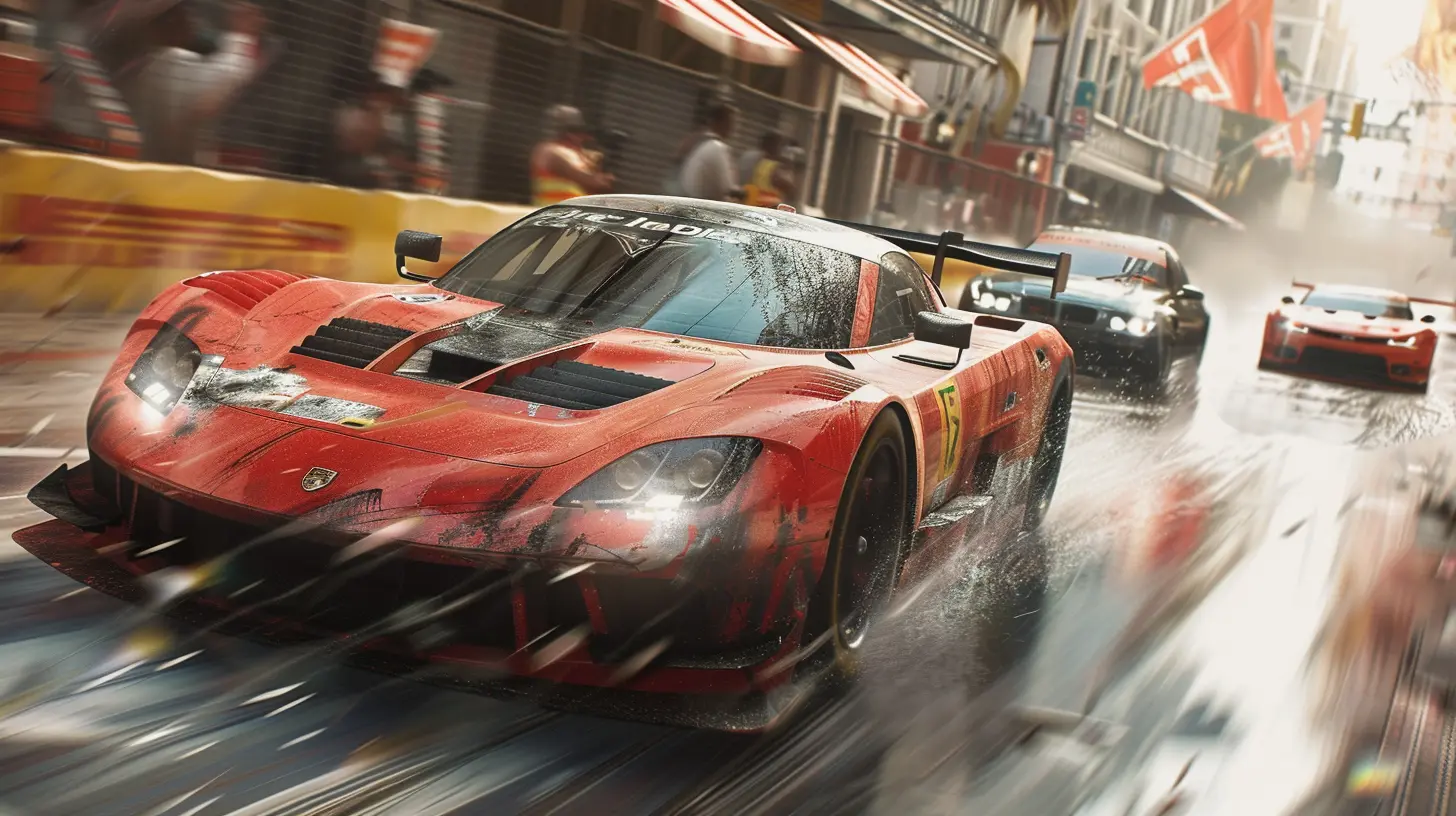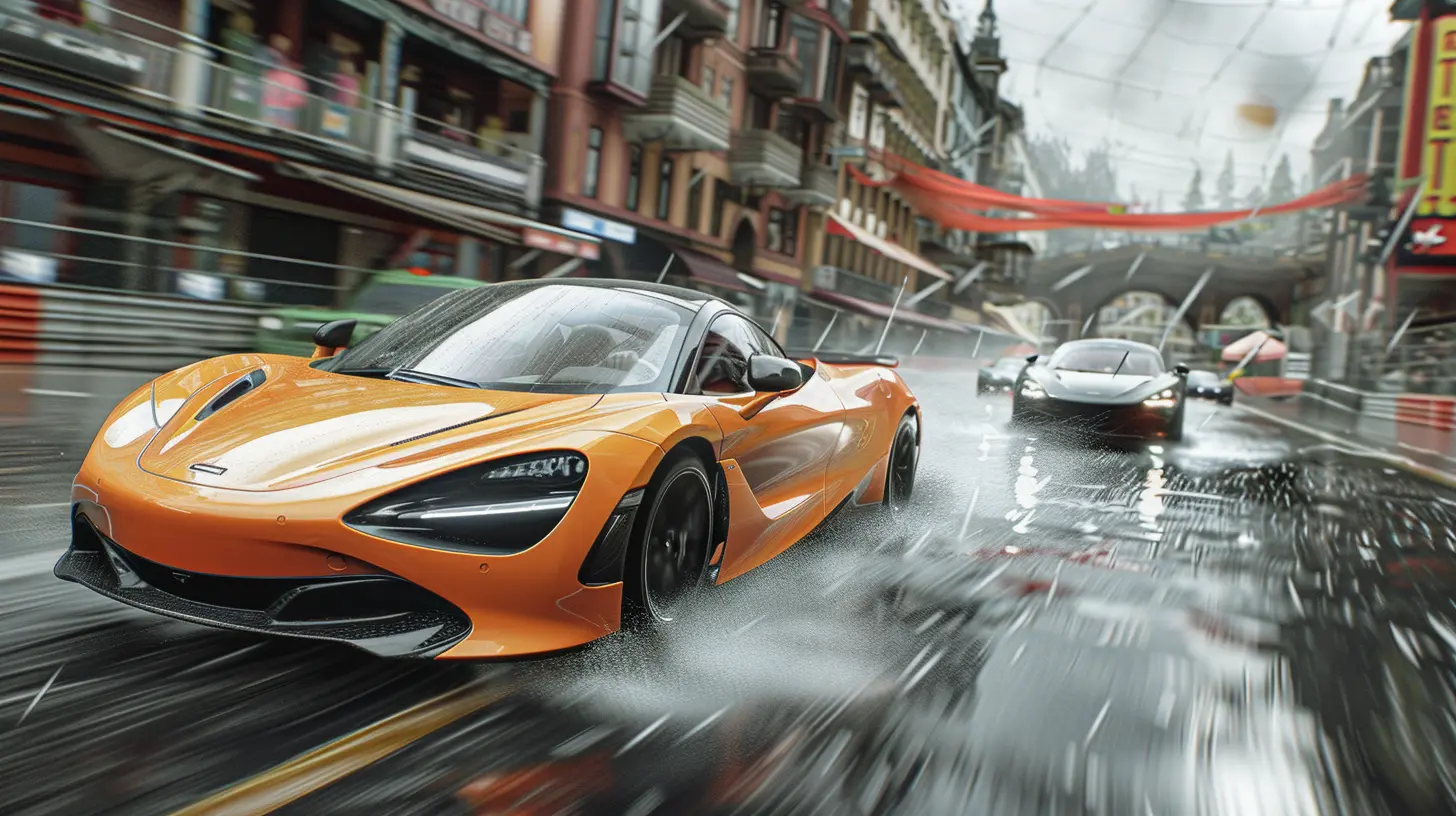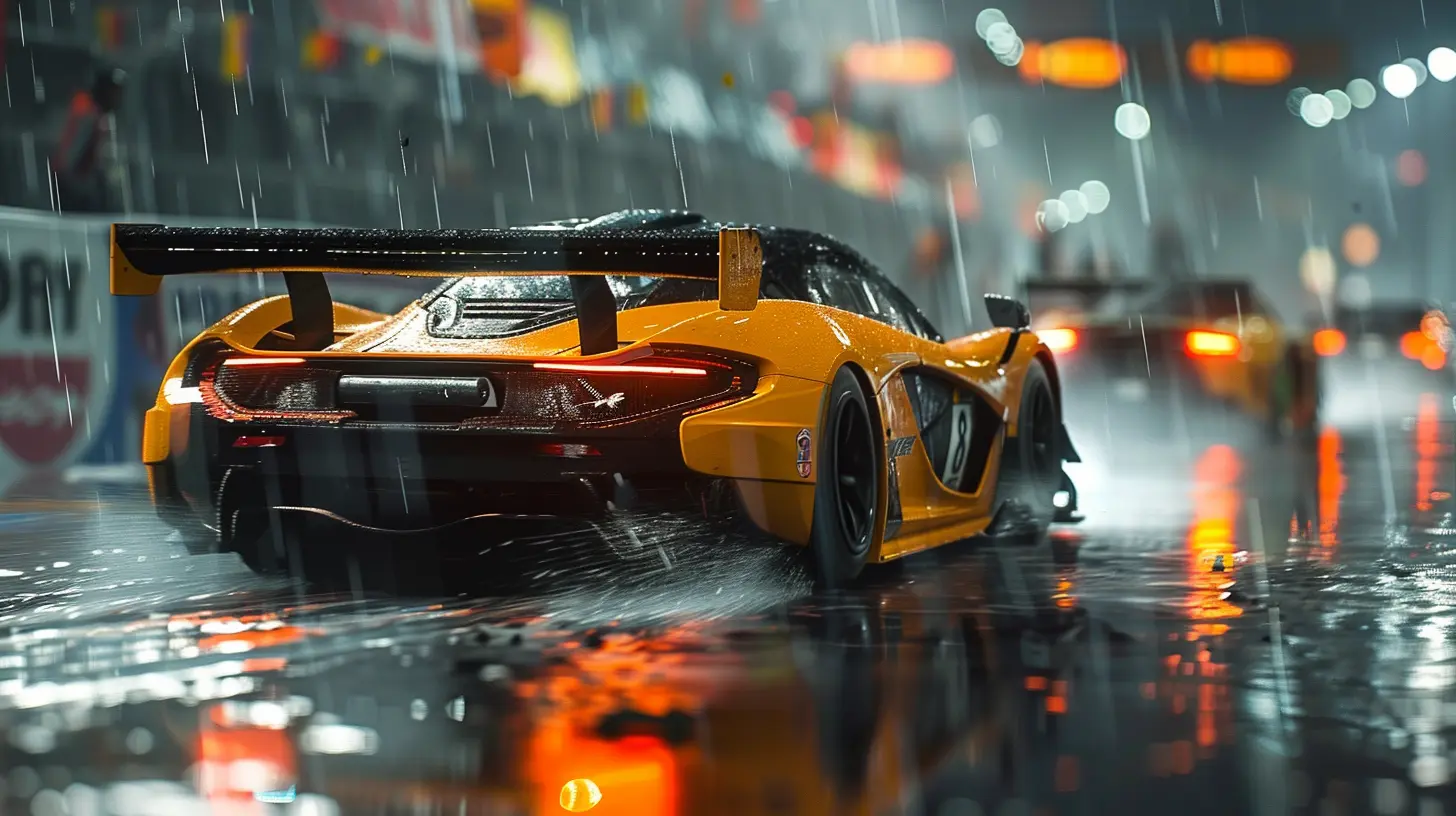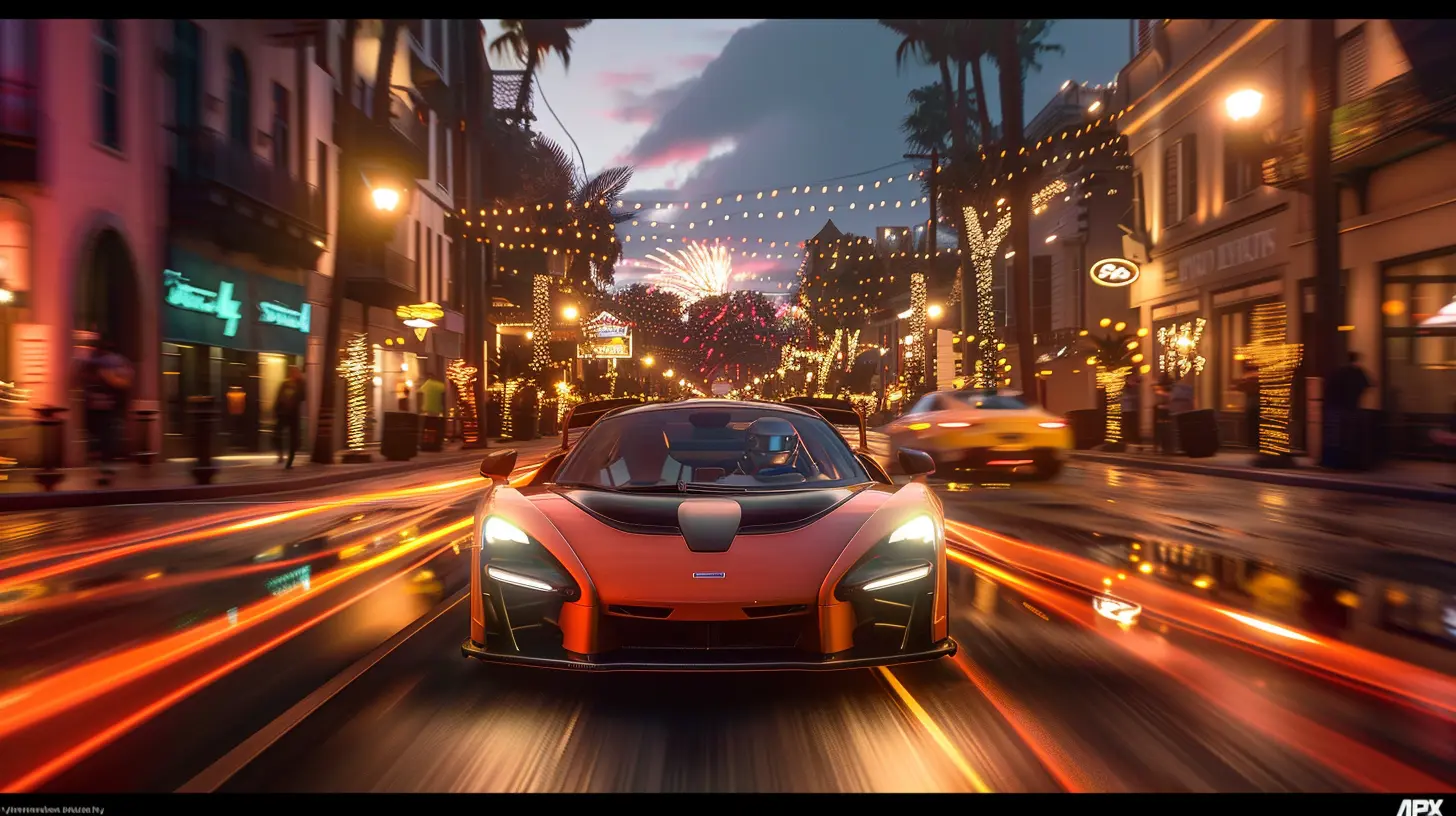The Impact of Licensed Cars in Racing Games – Real or Fantasy?
24 June 2025
Let’s be honest—racing games without licensed cars are like pizza without cheese. Sure, it’s technically still pizza, but something just feels off. Whether you're tearing up the asphalt in a Bugatti Chiron in Forza Horizon or modding the life out of your Lancer Evo in Gran Turismo, licensed cars bring a whole different vibe to the virtual track. But is that vibe based in reality—or are we just living the ultimate car fantasy?
Let's shift gears and dive into the impact of licensed cars in racing games and whether they keep it real—or just keep it really fun.
Why Licensed Cars Make Us Drool (And Smash That Buy Button)
You know that feeling when you finally unlock that Lamborghini Huracán and rev the engine like you're about to hit the Monaco Grand Prix? Yep, that's the licensed car fanfare doing its job.It’s not just about the logo slapped on the grille. It’s about fantasy fulfillment. Most of us won’t ever own a McLaren P1 or a Ferrari 488 GTB, but thanks to licensed cars in racing games, we get to at least pretend—and baby, we do it in style.
Real Brands, Real Dreams
Seeing real-world brands in games triggers something visceral. It’s marketing black magic meets gamer fantasy. Brands like Porsche, Chevrolet, Nissan, and Mercedes-Benz know what they’re doing. The games give them exposure, and we get to live out our fast-and-furious dreams.Authenticity That Hits Different
Licensed cars bring a level of authenticity that fantasy models just can’t touch. From the sound of the exhaust to the shine of the paint, it screams "this is the real deal." And when you’re pulling off a 200 mph drift through downtown Tokyo in a fully modeled Toyota Supra? Nothing else comes close.
But Wait—Are Licensed Cars Always Better?
Hold up. Let’s pump the brakes for a second. Is real always better? Not necessarily.Limited Creative Freedom: The Chains of Licensing
Here’s the tea—when developers bring licensed cars into the mix, they're handcuffed by all sorts of contracts and brand guidelines. Want to let players slap a unicorn wrap on a Ferrari? Forget about it. Want to let them crash it into the side of a building at 300 mph just to see what happens? License holders are clutching their pearls.The result? Sometimes, the game ends up feeling more like a showroom than a sandbox.
The Paperwork Problem
Behind every licensed car is a mountain of paperwork. We're talking legal teams, brand managers, approval processes—it’s a whole circus. All of this slows down development and inflates costs. So instead of dropping your dream car on launch day, you might get it six months later as a $15 DLC. Oof.
Fantasy Cars: The Underdog Heroes
Now let’s give it up for the unsung heroes—fantasy cars. These are the crazy, over-the-top, rocket-fueled beasts born from the wild imaginations of game developers. They don’t exist in real life, and that’s kind of what makes them awesome.Freedom to Go Full Bonkers
When devs aren’t tied down by licensing restrictions, the creativity goes into overdrive. Want a hover-racer with jet thrusters? Done. How about an electric tank with nitro boosts? You got it. Fantasy cars let the imagination go full throttle.Genre-Bending Madness
Racing games aren’t always about realism. Some are pure adrenaline-fueled chaos—games like Wipeout, Burnout, and F-Zero thrive on pushing the laws of physics and mechanics. Real cars wouldn’t survive a single lap, and that’s the point. These games are all about fun, not fidelity.
The Psychological Pull of Realism
Here's where things get a little deep. Humans are wired to crave connection—and when we see something familiar (like that shiny Audi R8 we saw at the dealers last week), it hits different. It reinforces our sense of reality within the game world.Car Culture Flex
Let’s not ignore the social flex. Pulling up to a digital car meet in a fully tuned, real-world Camaro SS, complete with licensed decals and parts? That’s straight-up car culture. It’s a form of expression. A digital extension of your dream garage.That Sweet, Sweet Nostalgia
Licensed cars also tap into nostalgia like it's nitrous oxide. Remember spending hours trying to unlock that Subaru Impreza in an old-school Need For Speed title? Now you spot it in Gran Turismo and bam—you're 13 again, on your PS2, with a bowl of cereal and world domination in mind.From Need for Speed to Forza: The Evolution of Licensed Cars
Let’s take a ride through racing game history and see how licensed cars have evolved.The Early Days
Back in the ‘90s, licensed cars were rare. Developers used "inspired by" knockoffs to avoid costly legal messes. Remember Ridge Racer and its fictional rides? Yeah, our wallets were safe, but our dreams weren’t quite fulfilled.The Golden Era
With franchises like Gran Turismo and Forza stepping on the gas in the 2000s, licensed cars became the norm. Suddenly, racing games weren’t just arcade fun—they were car porn. The detail, the customization, the physics—it all became hyper-real.The Modern Blend
Today’s games strike a balance. Forza Horizon gives you real-life rides in bonkers scenarios. Need For Speed mixes licensed rides with over-the-top storylines and outlaw vibes. And indie games? They’re still playing with fantasy cars like they're Hot Wheels on a sugar high.Multiplayer and Marketing: It's a Whole Business Model
Okay, here’s a spicy take—licensed cars aren’t just about the player experience. They’re marketing gold.Product Placement on Wheels
Ever noticed how certain cars get seasonal events, spotlight races, and even trailers all to themselves? That ain't by accident. Car brands pay (and get paid) to be featured. Games have become the new showrooms, and we're the test drivers.Online Clout and Virtual Identity
When you show up in an online match with a decked-out Koenigsegg Jesko you unlocked legit, it says something. That’s your identity. That’s your “I grind harder than you” badge of honor. And when that identity is tied to a real-world luxury brand? Instant digital swagger.So… Real or Fantasy? Which One Wins?
Here’s the curveball—neither. It’s not about one being “better.” It’s about the experience you’re after.Real Cars = Realism & Relatability
You want hardcore sim-racing? Licensed cars bring the realism. Proper handling, accurate acceleration, real-world specs. It’s like being on Top Gear, but without the insurance nightmare.Fantasy Cars = Fun & Freedom
You want to defy gravity, launch off neon ramps, or dive into cyberpunk chaos? Give us those fictional rides, baby. No rules, no limits, just straight-up fun.The Best of Both Worlds
What if I told you—you don't have to pick? Many modern racing games blend both. They give you realistic cars for the “oohs” and “aahs,” and fantasy rides for the wild, unforgettable moments.Games like Rocket League took car physics and realism, threw them in the blender with banana peels, and made magic. And guess what? It works.
Final Lap: The Real Impact of Licensed Cars
Licensed cars have reshaped the racing genre. They’ve elevated expectations, set new standards for realism, and brought a whole new level of cultural impact. But fantasy rides still keep the genre fresh, creative, and accessible.At the end of the day, whether you're racing in a real-deal Bugatti or a made-up meteor-powered speed demon, it's all about the thrill. The soundtrack of screeching tires, the adrenaline, the satisfaction of nailing that perfect drift—that's the heart of racing games.
So... real or fantasy? Why not both?
all images in this post were generated using AI tools
Category:
Racing GamesAuthor:

Audrey McGhee
Discussion
rate this article
2 comments
Bridget McFarland
What a fun read! 🌟 Licensed cars add such authenticity and excitement to racing games, blending real-life passion with fantasy thrills. Can't wait to see what’s next! 🚗💨
September 21, 2025 at 3:34 PM

Audrey McGhee
Thank you for your enthusiasm! I'm glad you enjoyed it. Licensed cars truly do bridge the gap between reality and fantasy in racing games! 🚗✨
Brooke James
Licensed cars in racing games bridge the gap between reality and fantasy, enhancing player immersion and brand recognition. While they add authenticity, the representation often favors performance over realism, creating a unique blend that appeals to both car enthusiasts and gamers.
July 1, 2025 at 3:00 PM

Audrey McGhee
I appreciate your insights! Licensed cars indeed offer a captivating blend of realism and fantasy, enriching player experience while balancing authenticity with gameplay appeal.


